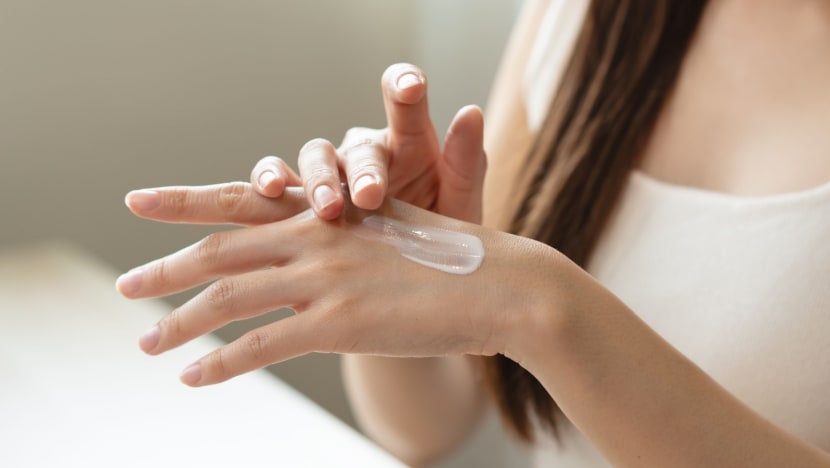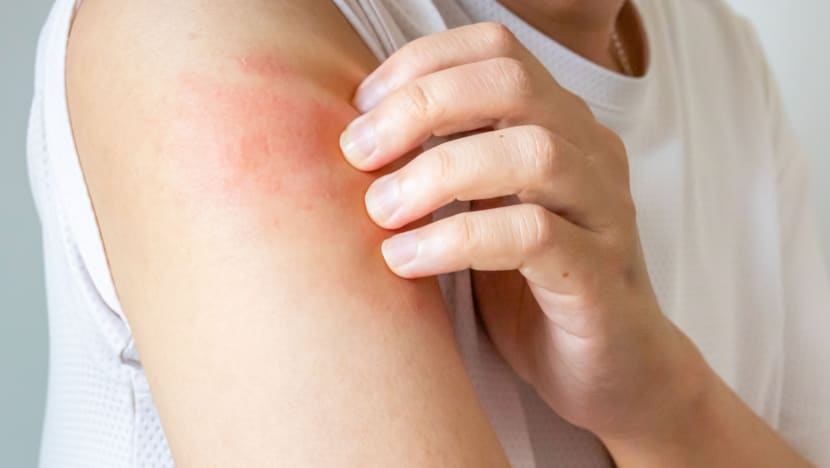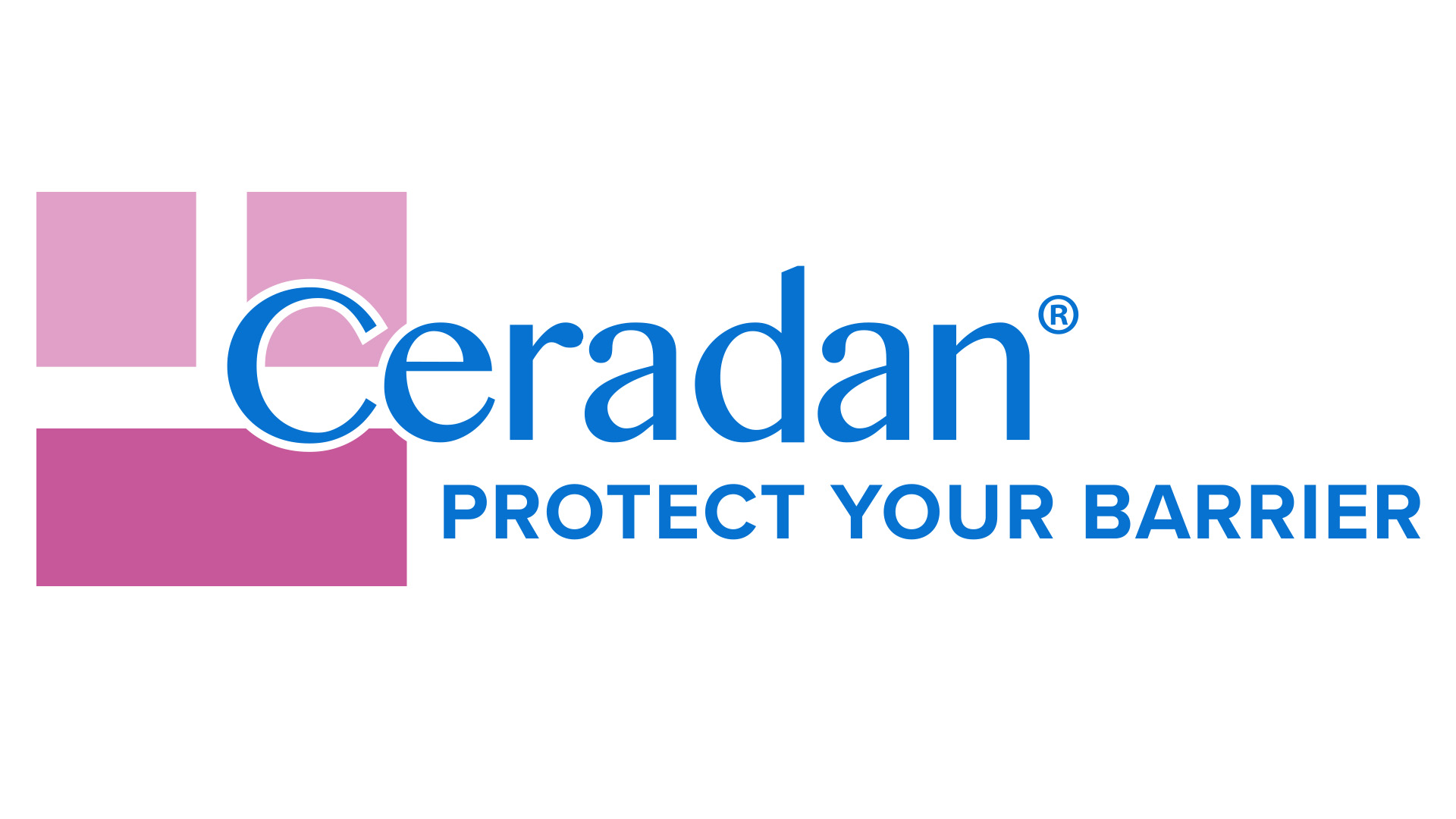Seal the deal: How ceramides help lock in skin health
A consultant dermatologist breaks down the role of the skin barrier and explains how ceramides support it by boosting hydration and calming irritation.

Ceramides play a key role in restoring the skin’s barrier and promoting recovery, says Dr Joseph Toh, consultant dermatologist at Parkway MediCentre Dermatology Clinic. Photos: Shutterstock, Ceradan

This audio is generated by an AI tool.
For those struggling with skin issues, it can be tempting to overdo skincare routines. This was true for a 32-year-old patient of Dr Joseph Toh, who used harsh exfoliants daily in an attempt to improve her complexion. But the excessive cleansing did more harm than good – she soon developed severe redness, stinging and flaking, recalled the consultant dermatologist at Parkway MediCentre Dermatology Clinic.
“She described her face as feeling like it was ‘burning all day’,” he said.
WHY THE SKIN BARRIER MATTERS AND WHAT DAMAGES IT
The skin barrier is the outermost layer of your skin, made up of skin cells and lipids. It acts as a shield, locking in moisture and keeping harmful substances out. When intact, skin stays smooth, hydrated and resilient. When compromised, it can become dry, irritated and inflamed.
In Dr Toh’s patient’s case, her symptoms were classic signs of a damaged skin barrier: Increased sensitivity, stinging after applying products, tightness, itchiness, rough texture and inflammation. He explained that this happens when the skin can no longer retain moisture or block out irritants.
Beyond harsh soaps and over-cleansing, several environmental and genetic factors can weaken the skin barrier. Singapore’s high humidity and heat can encourage the body to produce more sweat, which may aggravate sensitive skin. Urban air pollution can trigger oxidative stress and inflammation, while prolonged exposure to air-conditioning can dehydrate the skin. “Ongoing exposure to these elements without adequate moisturisation can weaken the skin barrier, especially in those with existing sensitivities,” said Dr Toh.

Eczema, or atopic dermatitis, is one example. Mutations in the filaggrin gene – present in up to 10 per cent of individuals – impair skin hydration and structure, making skin more vulnerable to environmental stressors. Dr Toh shared that scratching itchy, eczema-affected skin further disrupts the barrier, creating a vicious cycle of damage and irritation.
“A compromised skin barrier increases trans-epidermal water loss and lets irritants and allergens in more easily, worsening conditions like eczema, acne and rosacea,” he elaborated. “This can reduce quality of life and cause persistent discomfort.”
REPAIRING THE SKIN BARRIER
While skin can often heal itself, it sometimes needs a helping hand.
When damage is caused by eczema, ageing or excessive cleansing, the skin barrier may struggle to produce ceramides, said Dr Toh. Ceramides are waxy lipid compounds that make up about 50 per cent of the skin’s lipid matrix – a protective coating on its surface.
If you think of skin cells as bricks, ceramides are the mortar holding them together, he explained. “They prevent moisture loss and protect against environmental damage. Without adequate ceramides, the barrier becomes leaky and vulnerable.”
Furthermore, inflammation and stress can reduce the enzymes needed to produce ceramides, making it harder for the skin barrier to repair itself. “Topical products supply ceramides to replenish what the skin lacks, accelerating healing. They integrate into the lipid matrix, helping to seal gaps, reduce trans-epidermal water loss and soothe inflammation,” said Dr Toh.
According to Dr Toh, the specific 3:1:1 ratio is key because each component plays a specific role. Cholesterol provides structure and stability, while free fatty acids maintain fluidity and help acidify the skin’s pH, deterring harmful bacteria and supporting enzyme activity for repair.
TOWARDS HEALTHIER, RESILIENT SKIN

Dr Toh recommends that people with sensitive or eczema-prone skin avoid long showers and harsh soaps, and choose creams that mimic the skin’s natural 3:1:1 lipid ratio for effective skin barrier repair.
He recalled a patient in his 40s who eased monthly eczema flares by switching from a fragranced shower gel to a gentler, non-scented alternative and applying a ceramide-based moisturiser after every shower. “This small change helped improve his symptoms,” he noted.
Ceramide-based products come in various forms – from cleansers to moisturisers and barrier creams. The Ceradan range, for example, includes options for daily use and more intensive care, all formulated to be both effective and gentle on skin.
For best results, Dr Toh suggests applying ceramide creams at least three times a day, especially after bathing or handwashing. Ideally, they should be applied within three minutes of towel-drying to lock in moisture: “Damp skin enhances absorption. Keeping the cream in the fridge can also provide a cooling, anti-itch effect.”
While some assume oily skin does not need moisturising, that’s a misconception. “Even oily skin can have an impaired barrier and benefit from lipid-rich moisturisers,” he added.
Dr Toh’s other tips include using a humidifier during long hours in air-conditioned environments, showering in cool to lukewarm water, wearing breathable cotton clothing to reduce sweat-induced irritation and managing stress to prevent eczema flares.
“Stay hydrated and eat a balanced diet rich in omega-3 fatty acids, with foods like flaxseed or salmon,” he advised. “Don’t fall for the myth that drinking water alone hydrates the skin – real hydration comes from your skin’s natural moisturising factors and topical lipids like ceramides.”
Ceradan products are available at Guardian, Watsons, Unity, the Ceradan SG Official Store on Shopee and the Ceradan Flagship Store on Lazada. Follow @Ceradan311sg to learn more about managing eczema and sensitive skin.















